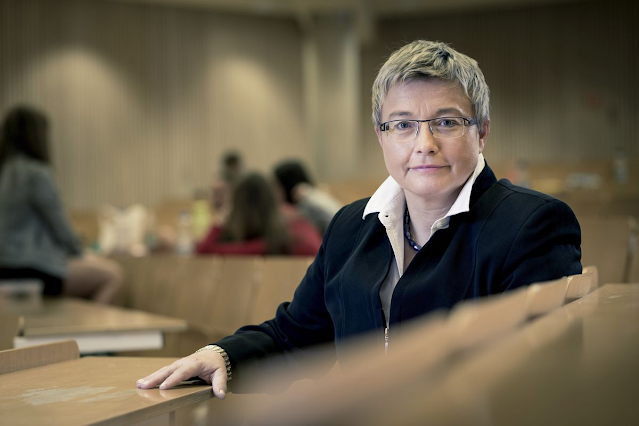Demand that power is handed over to a dictatorship of the lay elite
Due to their dignity and vocation derived from baptism and confirmation, lay people have a share in the "general priesthood" and thus in the power of leadership of the church. However, they are often deprived of this, criticised the theologian Johanna Rahner.
The theologian Johanna Rahner from Tübingen demands more power and decision-making authority for non-clerics in the Catholic Church. Due to their dignity and vocation derived from baptism and confirmation, lay people have a share in a "general priesthood" and thus in the power of leadership of the Catholic Church. However, this is too often withheld from them, she said on Saturday at a conference of the Catholic Academy in Freiburg. In order to make the necessary transfer of power legally secure, a different canon law is ultimately needed. "The Catholic Church must become more democratic," Rahner said.
In a panel discussion, Archbishop Stephan Burger of Freiburg referred to the current reorganisation of parishes in the Archdiocese of Freiburg. According to church law, the leadership of the new large parishes remains with one pastor. "On the ground, however, there is a lot of leeway that Catholics can use in the sense of subsidiarity." Georg Bier, an expert in canon law from Freiburg, described the current legal situation, according to which parish leadership lies solely with the parish priest. "To really change something here, the local bishops would have to go into conflict with the Vatican and the hierarchy, but most bishops don't dare to do that. Obedience is part of their DNA," Bier said.
Commenting on the results and demands of the nationwide reform project Synodal Path, the canon lawyer said that those responsible had "studiously ignored" for years that all resolutions were only proposals that were non-binding under canon law. "The local bishops are completely free to implement them - or not." At the same time, Bier analysed that he did not see any movement towards a corresponding change in canon law. "There are currently no indications that the Vatican wanted to strengthen the rights of lay people."
Cathcon: Revolutions always demand new codes of law.










.jpeg)

Comments